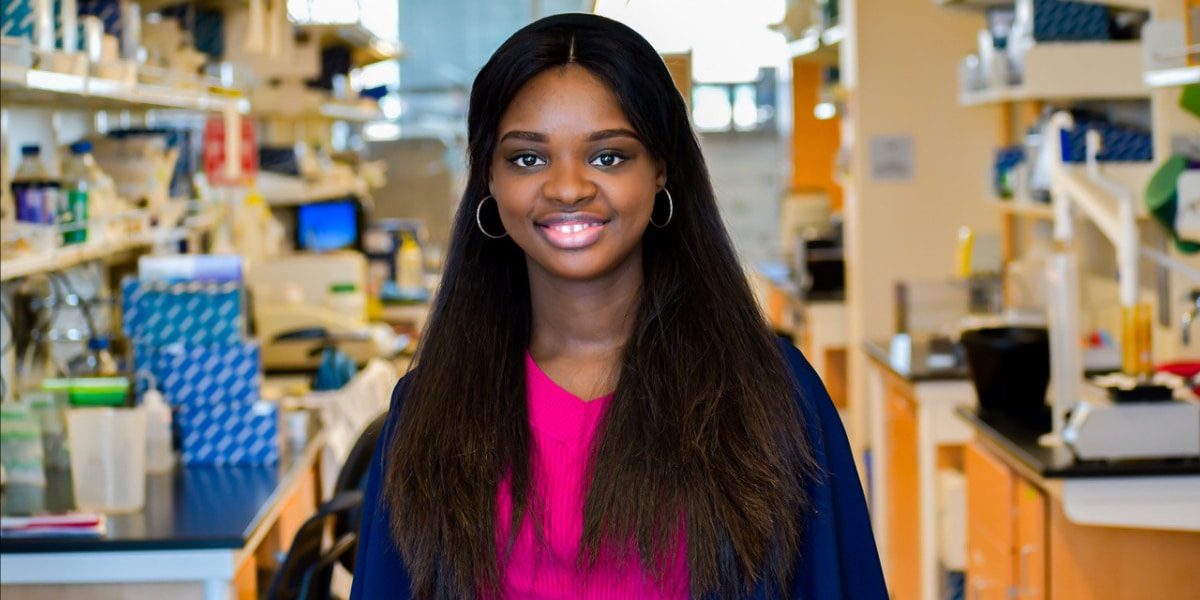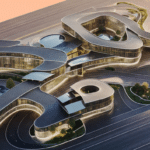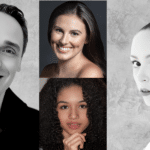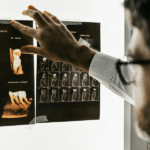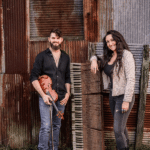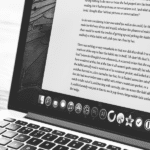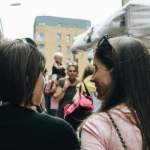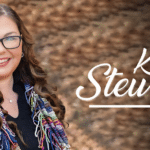In this compelling interview with Esse Aigbokhan, a rising star in the fields of biotechnology and biomedical engineering, we delve into the remarkable journey of a determined and visionary scientist. From winning the prestigious Stephen Oluwole Awokoya Prize for Science in Nigeria to pursuing a Ph.D. in Biomedical Engineering at Washington University in St. Louis, Esse’s story is one of relentless pursuit of innovation and dedication to healthcare accessibility.
Interviewer: Esse, you’ve been recognized as an emerging star in biotechnology and biomedical engineering. Can you tell us about your journey starting with the national science prize you won in Nigeria?
Esse Aigbokhan: Certainly! The Stephen Oluwole Awokoya Prize for Science is a distinguished national merit award bestowed upon outstanding young scientists to advance the development of science education within Nigerian universities. I can still clearly remember my excitement on that morning in March 2016 when I was informed of my award. My nomination was put forward by my alma mater, Bells University of Technology, in honor of my academic achievements. I graduated top of my class in the Department of Mechanical and Biomedical Engineering with distinction and had designed an incubator that included a phototherapy unit. This recognition not only affirmed my abilities but also strengthened my belief that my life’s purpose is to leverage my knowledge of biomedical engineering to make healthcare innovations accessible to as many people as possible.
Interviewer: You were born in Abuja and raised in Lagos. How did your early life in Nigeria influence your career path?
Esse Aigbokhan: During my early years, I lived in two places – Abijo and Ikoyi, located in Lagos State, Nigeria. My parents, both employed as civil servants by the Federal Government, ensured a reasonable standard of living for my siblings and me. However, we were acutely aware of others who were less fortunate than we were in our surroundings. I observed, for instance, parents who couldn’t afford to purchase medications for their sick children. Some children even had to stop attending school because they were sent to traditional healing homes due to their parents’ inability to cover orthodox healthcare costs. These experiences began to shape my perspective on healthcare and accessibility to it from a very young age.
When I was 14, I was appointed the health prefect at my high school. This position allowed me to encourage good hygiene practices among my schoolmates and further define what I believed to be my life’s mission. I came to understand that I wanted to do more than just provide people with what they needed to improve their health; I wanted to be part of the process of creating these medical solutions. This realization led me to enroll in a biomedical engineering program, a decision I have never second-guessed. Since then, I have remained dedicated to this path, aiming to make a significant impact in the healthcare sector.
Interviewer: After graduating, you joined GlaxoSmithKline (GSK) Pharmaceuticals in Nigeria. What were your key contributions there?
Esse Aigbokhan: During my tenure at GSK, I was actively engaged in the development and implementation of programs designed to enhance prescribers’ awareness of asthma control devices and to increase access to these medications for asthma patients, particularly children. My contributions were acknowledged with several global awards, a testament to my dedication and hard work. One of my proudest achievements is that throughout my time at the organization, GSK consistently topped the Access to Medicines index. This index ranks 20 of the world’s largest pharmaceutical companies based on their efforts to improve access to treatments for high-burden priority diseases. It gives me a great sense of accomplishment to have played a part in this success.
Interviewer: Your academic pursuits didn’t stop with your undergraduate degree. Could you share more about your postgraduate studies and research focus?
Esse Aigbokhan: Certainly. I am currently pursuing a Ph.D. in Biomedical Engineering at Washington University in St. Louis, after having obtained a Master of Science degree in the same field. My thesis is centered on advanced microbial therapeutics, with a specific focus on enhancing the delivery of therapeutic biologics. This research addresses the significant challenges associated with parenteral administration, including systemic immune activation, adverse events, and high manufacturing and maintenance costs. The potential impact of this work is substantial, as it could revolutionize drug delivery methods, potentially reducing treatment costs, and improving the patient’s quality of life.
Interviewer: You’ve also co-founded a startup using AI in healthcare. Can you elaborate on that?
Esse Aigbokhan: We are working on enhancing access to, and potentially the use of, Diabetes Self-Management Education and Support services through the application of Artificial Intelligence. By utilizing Generative Pre-Trained Transformer models and third-party APIs, we aim to develop a chatbot that can effectively augment the impact of providers and dietitians. This approach is designed to make their services more accessible to individuals who may otherwise be unable to access them due to factors such as cost, distance, or convenience. This aligns with the objectives of the Healthy People 2030 program. Furthermore, our initiative also seeks to encourage healthcare engagement among individuals living with diabetes.
Interviewer: Apart from your professional endeavors, how do you contribute to the community?
Esse Aigbokhan: As our conversation has undoubtedly revealed, I have a deep-seated passion for healthcare access. In my leisure time, I channel this passion into freelance consulting for healthcare startups, offering insights on global health issues as a committee member, and mentoring aspiring engineers and scientists. Additionally, I dedicate my time to volunteering at my church.
Interviewer: Finally, what does your journey signify for aspiring scientists and engineers?
Esse Aigbokhan: Sure! I am deeply appreciative of the journey I’ve embarked on thus far. I wouldn’t be where I am today without the unwavering support of my husband, my mother, my extended family, and my friends. My journey signifies that anyone can realize their dreams with passion, determination, persistence, and the right support system. A final piece of advice I’d like to share with aspiring scientists and engineers is the importance of kindness to oneself and others. It’s a simple yet powerful principle that can make a world of difference.


